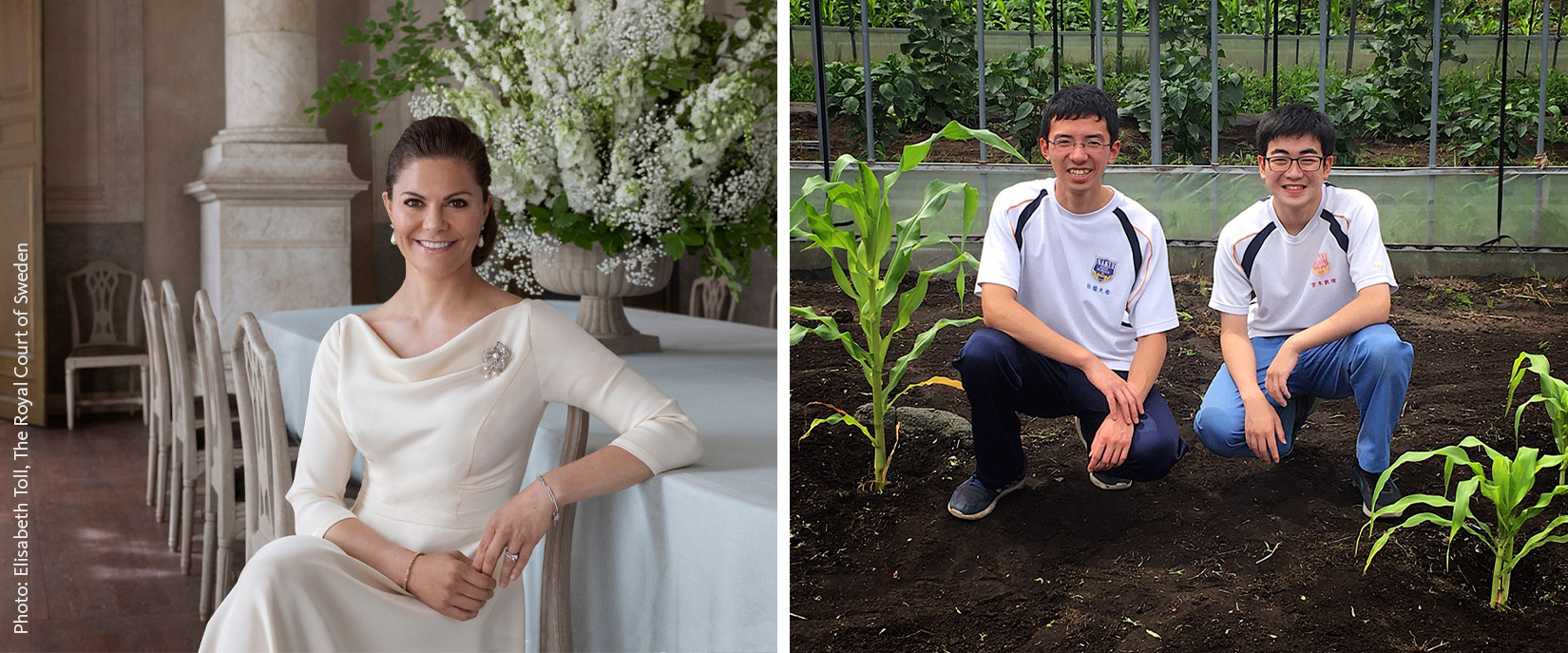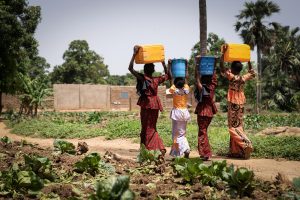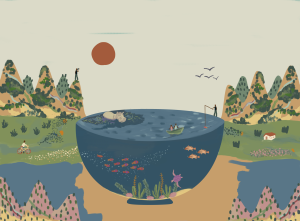Stockholm Junior Water Prize awarded to Japan
Hiroki Matsuhashi and Takuma Miyaki win the 2020 Stockholm Junior Water Prize. HRH Crown Princess Victoria of Sweden, Patron of the Prize, announced the winners at an award ceremony on 25 August. The Japanese team greatly impressed the Jury with their innovative approach to soil erosion, but competition was fierce with many worthy projects.
One of World Water Week At Home’s highlights took place on 25 August when HRH Crown Princess Victoria of Sweden held everyone in suspense before she announced the winners of Stockholm Junior Water Prize.
The international competition has been arranged by SIWI every year since 1997, with Xylem as Founding Sponsor, to encourage water innovation. Many thousands of students aged 15 to 20 compete with projects that could solve major global water challenges.
Competitions are normally held in 38 participating countries, with the respective winners eventually vying for the international title, but this year only 29 countries managed to hold their national contests. Still, this was certainly an achievement, given Covid-19, and Ania Andersch from SIWI thanked the Jury and the national organizers for going to great length to hold competitions. She also expressed how she this year was impressed not only by the creative projects competing, “this year, I am even more humbled by the fact that many of these projects were developed under the most challenging of circumstances. Many students have had to endure lockdowns, closed schools, economic uncertainty and worries about the safety of loved ones. Still, they have kept working on their projects, on solutions that will contribute to a better tomorrow not only for themselves but for many people in their communities and across the world,” she said.
HRH Crown Princess Victoria of Sweden, Official Patron of the Prize, also who expressed great admiration for all the finalists. In a filmed statement she said that she was not surprised that many ideas that started as Stockholm Junior Water Prize projects have proved to be important innovations changing many people’s lives for the better. Turning directly to the finalists, she encouraged them to continue to be role models who inspire boys and girls all over the world to pursue their dreams.
The 2020 Stockholm Junior Water Prize winners
Hiroki Matsuhashi and Takuma Miyaki from Japan won the Stockholm Junior Water Prize with a method to control soil runoff and increase food production. In a project video they explain why they chose to use the traditional Japanese soil solidification technology Tataki. “This system is made of only inexpensive natural materials, so it is cheap and eco-friendly. We would like to spread this system to the world and solve water and food problems,” the team said.
In its citation the Jury noted that: “This year’s winners have proven that simple local solutions can solve water problems in a global context. Through systematic studies the contestants have developed methods to make water conservation and soil management more achievable. The contestants effectively combined scientific knowledge and experimentation to revolutionize the way water is collected, used, and conserved for agriculture in arid regions.
The research also demonstrated soil erosion control and nutrient management to make agriculture sustainable through the method developed. The technology is a low-cost, simple to implement and globally applicable method for arid region agriculture.”
The Diploma of Excellence
Zoe Gotthold, USA, received a Diploma of Excellence for her innovative solution to tackling oil spills through primarily addressing the emulsion that forms between spilled oil and seawater. The project is cleverly named P.E.N.G.U.I.N.S, Promoting Emulsion Nullification Greenly Using Innovative Nucleation Surfaces, and could contribute greatly to protecting marine ecosystems and their inhabitants, penguins included.
In its citation, the jury said: “Global problems need creative solutions driven by fundamental knowledge and careful hypothesis-driven research.
This project embodies such research and could have scalable solutions to control oil pollution in marine ecosystems.
The contestant has demonstrated extraordinary knowledge and perseverance to accomplish the goal of this research.”
The People’s Choice Award
For the first time, the 2020 competition also gave the public a chance to vote for their favourite projects. The new People’s Choice Award was an immediate success, with close to 60,000 votes cast and all participants receiving votes. In the end, the Bangladeshi team Adittya Kumar Chowdhury and Khaled Iftekhar received the most votes for their approach to water purification.
In Bangladesh water treatment is still prohibitively expensive to many people, but Adittya Kumar Chowdhury and Khaled Iftekhar have developed a less costly method where water is treated through naturally derived poly glutamic acid in association with Moringa oleifera seeds as a coagulant.








